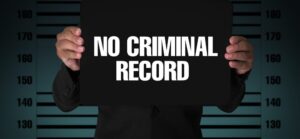
Murder, Manslaughter Charges & Penalties NSW (Homicide)
MURDER
Murder is one of the most serious criminal offences in New South Wales.
Homicide are cases involving the death of a person. The two most distinct categories of offences involving death are murder and manslaughter, but other offences include assault causing death (“one punch”) and other acts done with the intent to murder.
Section 18 of the Crimes Act 1900 defines murder and manslaughter. The key difference between the two offences relates to the state of mind of the accused in committing the act causing death. For murder the prosecution must prove that the act was done with reckless indifference to human life or with the intent to kill or inflict grievous bodily harm.
If this test is not met, then the offence is manslaughter.
MANSLAUGHTER
Manslaughter is the unlawful killing of another person is less serious than murder. This defers from murder as it refers to the unintentional or accidental killing of another person through your actions or omissions.
There are four different types of manslaughter
- Manslaughter by Criminal Negligence
Manslaughter by criminal negligence arises where the accused owed the deceased a ‘duty of care’, and a reasonable person in the accused position would have realised that their actions were negligent and posed a high risk of death or serious injury.
- Manslaughter by Unlawful and Dangerous Act
Manslaughter by unlawful and dangerous act arises where the accused causes another person’s death by acting in a way that the accused knew, or should have known, could result in serious injury.
- Manslaughter by Excessive Self-Defence
This is a situation where the accused acted to protect themselves, their property, or another person. Where the accused acted unreasonably in exercising self-defence and their actions result in the death of the other person.
- Manslaughter by Omission
Manslaughter by omission is a situation where the accused had an obligation to perform some action, and they failed to do so. For example, where a parent failed to properly take care of their child, who dies as a result of malnourishment.
“ONE-PUNCH LAW”
In 2014 following a campaign in the media about alcohol fuelled violence, the New South Wales government introduced a new offence for Section 25A of Crimes Act 1900- Assault Occasioning Death, colloquially referred to as the “one punch law”.
A person is guilty of this offence if they assault a person by intentionally hitting the person, the assault is unlawful and the assault causes the death of the other person. The prosecution does not have to prove that the death of the person as a result of the assault was reasonably foreseeable.
MAXIMUM PENALTIES
Murder
Murder charge trials occur in the Supreme Court of New South Wales. The maximum penalty for murder charge is life imprisonment. There is a mandatory life sentence for the murder of a police officer killed in the execution of their duties.
A life sentence for murder will only occur if:
- The accused person is found guilty of murder; and
- The prosecution proves beyond reasonable doubt that the level of criminality in the case was so extreme that only life imprisonment would be appropriate given the purposes of punishment (general & specific deterrence, community interest, community protection and the need for retribution).
When assessing the extent of criminality for any particular murder offence, the sentencing Judge will assess as follows:
- Degree of any premeditation,
- If there was any provocation,
- The extent of violence used, leading up to, during and after the murder.
A “standard non-parole period” is it guidepost for a sentencing judge when he or she is deciding how much of the sentence must be spent in custody before an offender is eligible for release on parole. There are three standard non-parole period prescribed for murder:
- 25 years for the murder of a person with the victim was a police officer, emergency services worker, correctional officer, judicial officer, council law enforcement officer, health worker, teacher, community worker or other public official exercising public or community functions and the offence arose because of their occupation or voluntary work;
- 25 years for the murder of a child; and
- 20 years for other murders.
Manslaughter
Manslaughter charge trials and other trials involving death may be prosecuted in the District Court. The maximum penalty for manslaughter charge is 25 years imprisonment. However, this penalty is usually only applied in the most serious manslaughter cases.
“One-Punch Law”
The maximum penalty for this offence is 20 years, however if the accused was intoxicated at the time of the offence the maximum penalty is 25 years, and there is a mandatory minimum sentence of 8 years.
DEFENCES
A person charged with murder can validly defend the charge by arguing any of the following murder defences:
1. Self-defence
2. Duress
3. Necessity
4. Automatism
6. Provocation (this will result in the charge being downgraded from murder to manslaughter, which carries less of penalties.)
A person charged with manslaughter can validly defend the charge by arguing any of the following manslaughter defences:
1. Self-defence
2. Duress
3. Necessity
4. Automatism
Coronial Inquest in Death Cases
A police investigation into a death my result in the NSW police laying charges or the coroner holding an inquest.
In some cases, the Coroner may form the view that a known person may have contributed to the death, and there is sufficient evidence to refer the matter to the Director of Public Prosecutions (“DPP”). If the Coroner forms this view during or at the end of an inquest, the Coroner may suspend the inquest and refer the inquest papers to the DPP. The DPP will then consider whether indictable charges should be laid against that person.
Counselling
If someone close to you has been murdered, or you have witnessed a homicide, there are several options for information and support. If the homicide occurred in New South Wales, you may be eligible for 22 hour or three counselling under the approved counselling service administered by victims’ services for more information please click here.
If you, or someone you know has been charged with murder or manslaughter and going to court, call our expert murder lawyers or expert manslaughter lawyers on our 24-hour dedicated phone number 0449 593 845.


